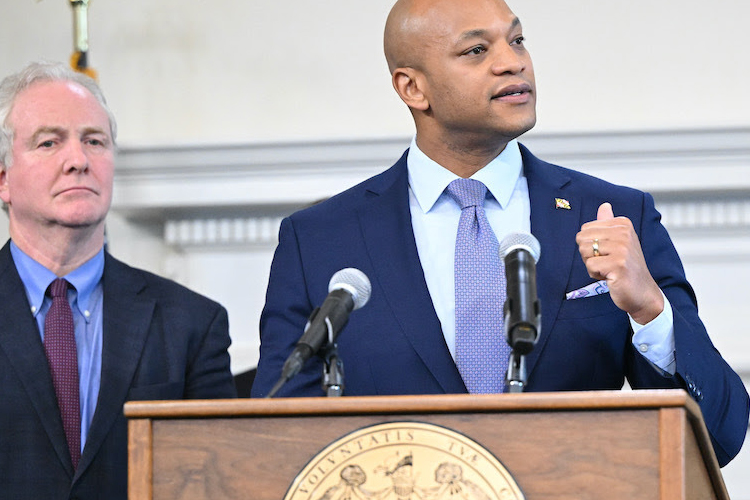ANNAPOLIS, Md. — Moody’s Ratings downgraded Maryland’s bond rating from AAA to Aa1 on Tuesday, ending a more than three-decade streak of top-tier credit status for the state, prompting sharp criticism from Gov. Wes Moore, who blamed the Trump administration’s fiscal legacy for the downgrade.
“Today’s announcement from Moody’s is just the latest externality of the Trump administration,” Moore said in a social media statement. “The federal admin’s decisions have wreaked havoc on our state.”
The Moody’s report did not mention Trump or his administration for the downgrade.
The downgrade, while modest, means the state could face slightly higher interest rates when issuing debt for infrastructure and essential services. Moody’s cited Maryland’s structural budget deficit and heightened risk from federal job cuts and funding reductions as primary reasons for the change.
Moore said thousands of federal job losses and deep cuts to health care and education imposed or proposed by federal officials had undermined the state’s fiscal footing. He defended his administration’s economic record, citing the creation of nearly 100,000 jobs and low unemployment rates over the past two years.
“Together, we turned a deficit into a surplus, gave the middle class tax relief… and reduced spending by over $2 billion,” Moore wrote. “This was not enough to overcome a Trump downgrade.”
Political response and fiscal outlook
Not all agreed with the governor’s assessment. Critics, including state Republican figures, argued that the downgrade reflected issues within state fiscal policy.
“Maryland’s loss of a AAA bond rating stems from misguided policies and reckless spending by the legislature and Governor Moore,” wrote Mike Tarlton, a state GOP commentator, in response to Moore’s statement.
According to Moody’s and state officials, the downgrade reflects increased financial pressure resulting from uncertainty around future federal aid and the broader economic consequences of large-scale federal layoffs.
Despite the downgrade, Maryland debt remains highly rated. State officials emphasized that Aa1 is still considered a strong rating and that Maryland remains committed to maintaining responsible borrowing practices.
Gov. Moore concluded his message by reiterating his focus on state-level resilience, stating, “Regardless of what Washington throws at us, I will not stop fighting to make this Maryland’s decade.”

